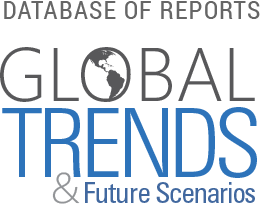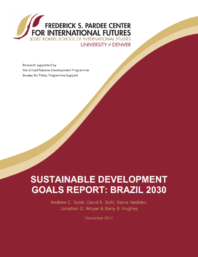
Sustainable Development Goals Report: Brazil 2030

A decade of inclusive growth in Brazil between 2003 and 2013 raised millions from poverty and reduced inequality, earning its leaders praise for its social progress and leading some to ask whether Brazil is a “role model” for other developing countries (Barrientos & Amann, 2014). Since 2014 however, Brazil’s economy has been mired in a deep recession and its political system paralyzed by a wide-ranging corruption scandal that has claimed the political lives of former Presidents. The combined economic and political situation in Brazil has revealed a number of structural challenges facing the country, including: an aging population, low and declining growth in economic productivity, rising unemployment, dilapidated infrastructure, and a political situation which has shaken confidence in Brazil’s public institutions. The policy choices made today to address its many challenges will determine Brazil’s ability to accelerate its development and meet the targets established by the United Nations (UN) Sustainable Development Goals (SDGs). This report explores Brazil’s development trajectory to 2030 across key sectors of human development and Brazil’s prospects for achieving select SDG targets. This report also includes four alternative scenarios designed to help readers to explore policy tradeoffs and prospects for achieving these targets. The 17 SDG’s, with a horizon out to 2030, represent the latest iteration of development targets, goals, and aspirations set forth by the global community to promote sustainable development and economic growth. This report uses the International Futures (IFs) Current Path scenario to examine development trends in Brazil out to 2030. IFs is an integrated assessment platform that relies on over 4,000 historical data series to produce forecasts for 186 countries out to the year 2100. IFs is developed and maintained by the Frederick S. Pardee Center for International Futures at the Josef Korbel School of International Studies at the University of Denver
- Issues:
- Climate Change, Economics
- Region:
- Latin America
- Country:
- Brazil
- Year Published:
- 2017
- Authors:
- Steve Hedden, Andrew C. Scott, David K. Bohl, Barry Hughes, Jonathan Moyer
- Institution:
- Frederick S. Pardee Center for International Futures

